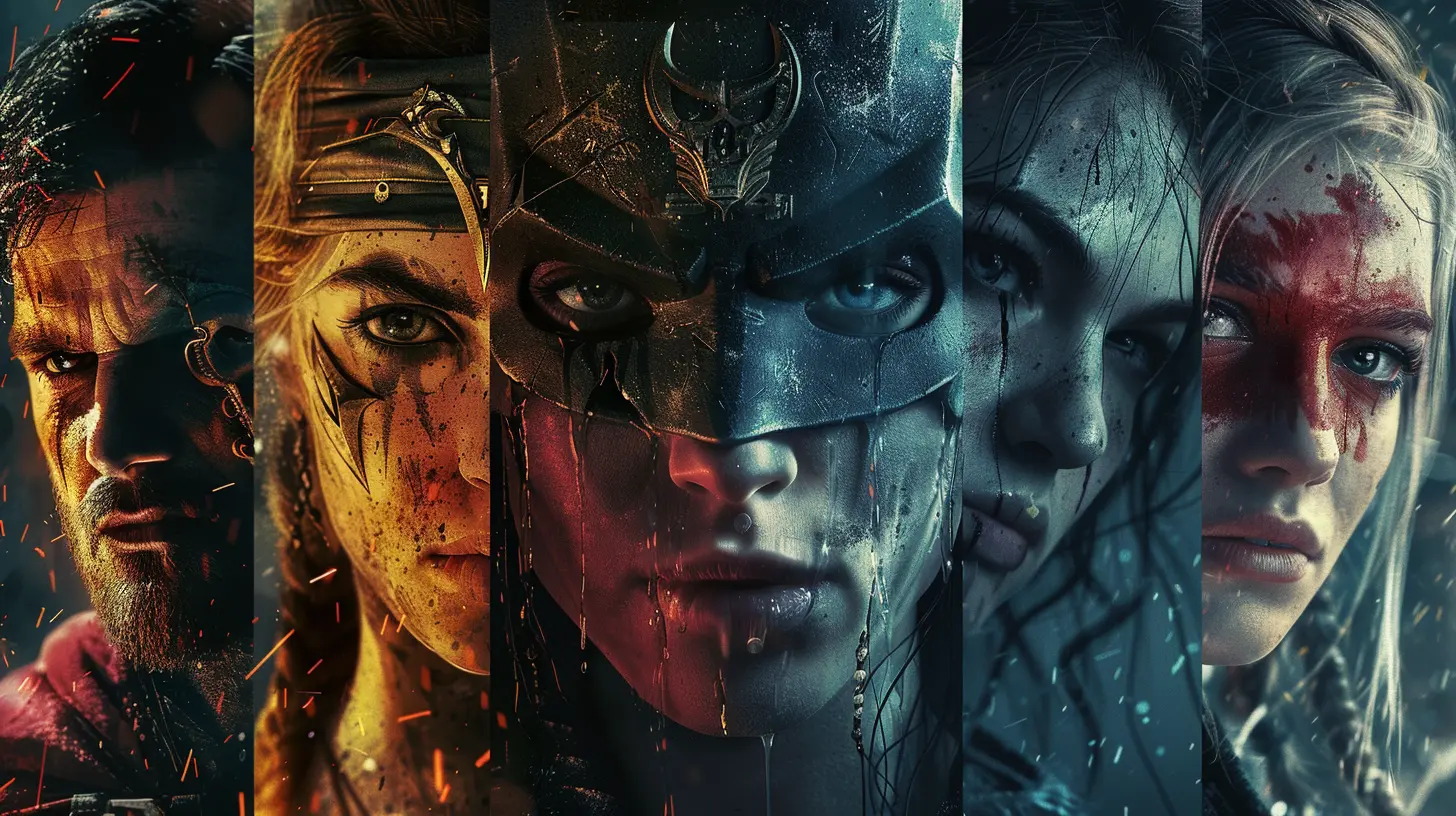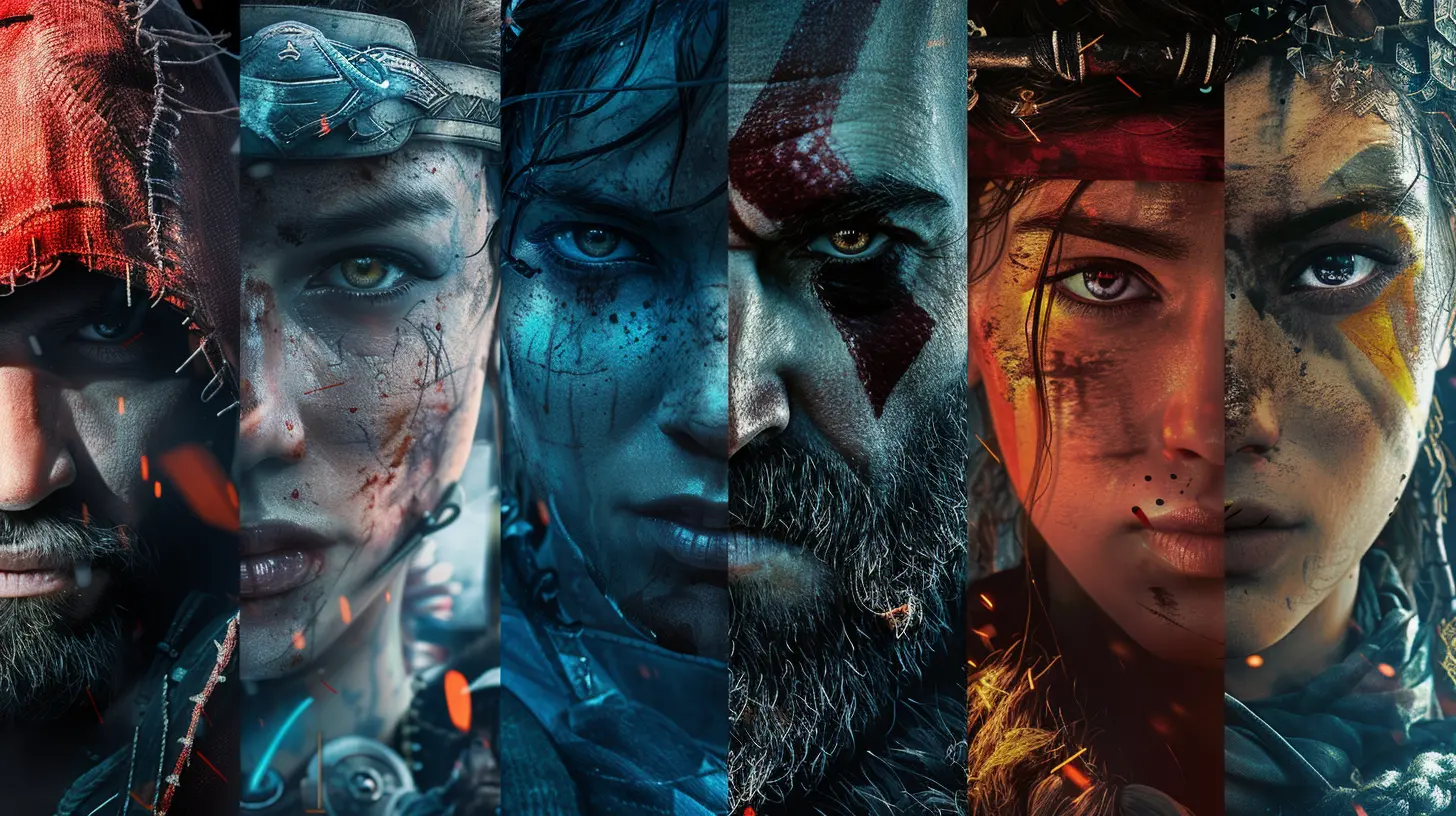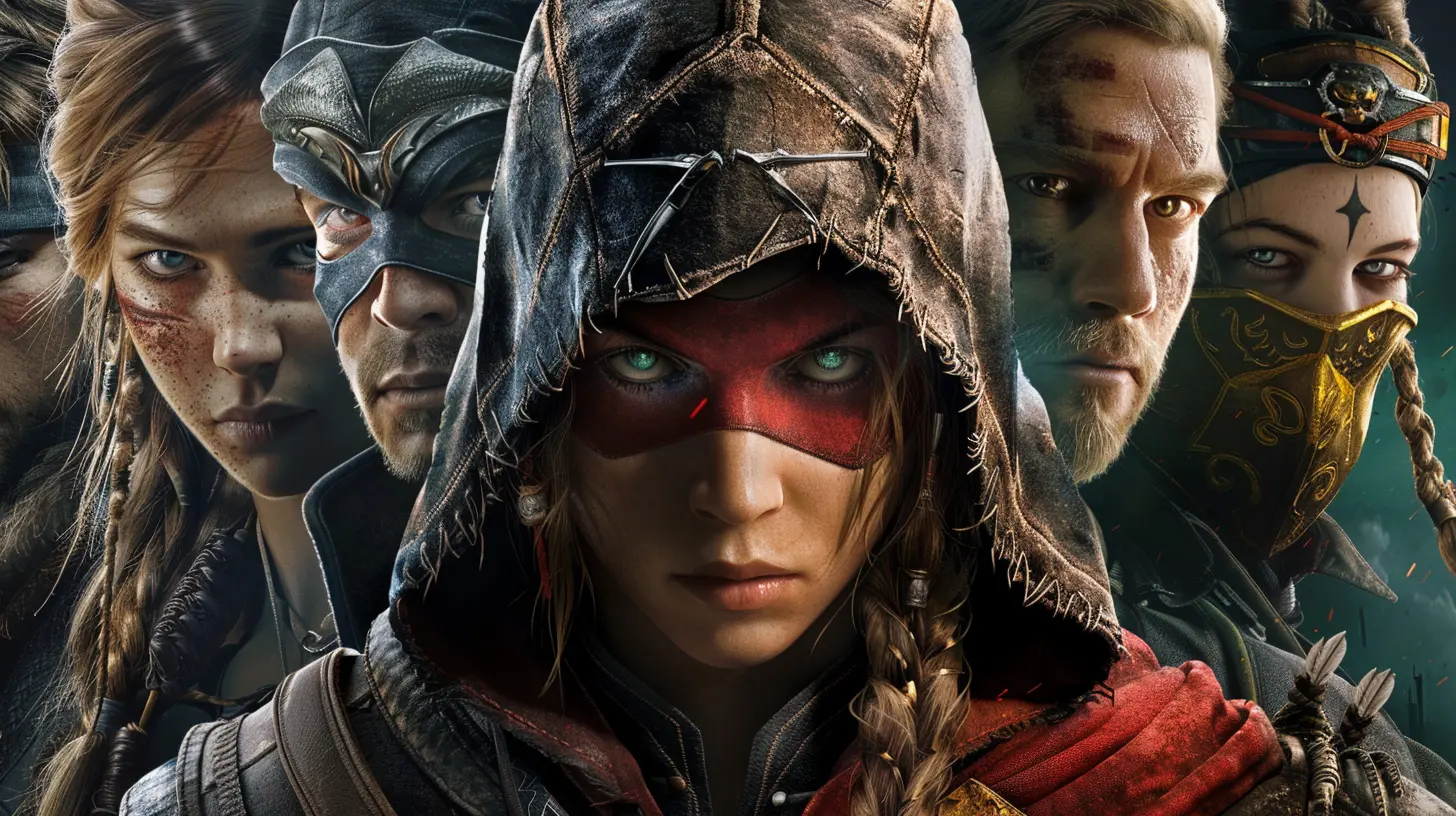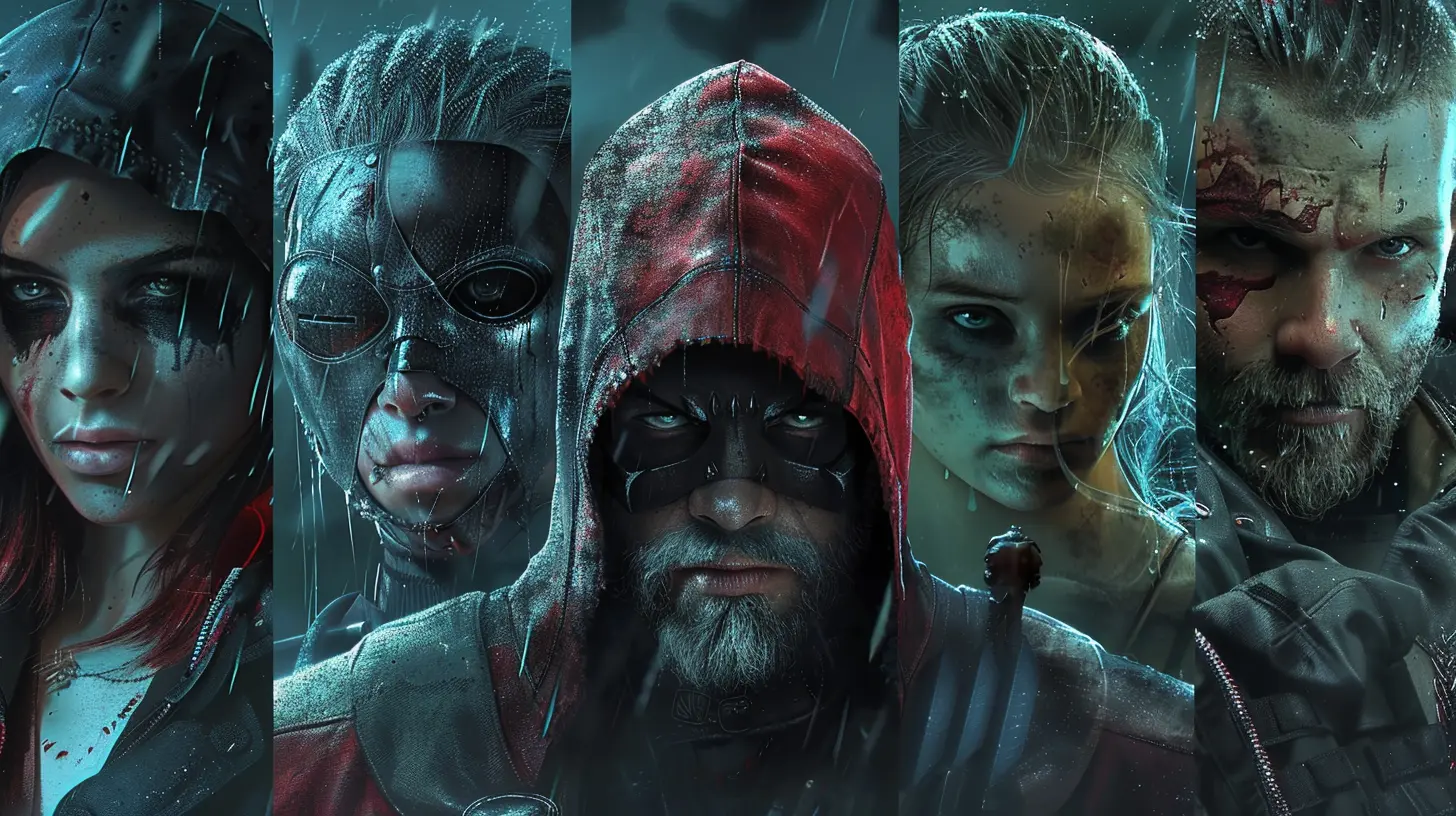7 December 2024
Let’s face it—video game protagonists have come a long way from the pixelated blobs of yesteryear. Back in the day, “complexity” meant slapping a mustache on a plumber and calling it character development. Now, though? Oh boy. Modern video game protagonists are walking emotional labyrinths, packed with more layers than a lasagna someone accidentally sat on.
But what’s the deal? Why do developers keep handing us protagonists with backstories juicier than a soap opera? And why are gamers eating it up like it’s the only snack at a party? Grab your controller—or at least pretend you’re holding one—and let’s dive into the beautifully tangled mess that is the modern video game protagonist. 
The Evolution of Video Game Protagonists: From Jumping to Angsting
There was a time when a video game character’s sole purpose was to jump, run, or occasionally eat a mushroom. Enter Mario, a man devoted to plumbing (kind of) and saving princesses (definitely). Did anyone ever ask why he was so obsessed with stomping turtles or why Bowser kept kidnapping Peach? Nope. We just rolled with it.Fast forward to today, and it’s like game developers all got together and said, “Let’s make gamers cry.” Characters now have childhood trauma, existential crises, and moral dilemmas so heavy they could bench-press a car. I mean, there’s only so much emotional baggage one thumbstick can take!
Take Joel from The Last of Us—the guy’s not just fighting zombies (or, okay, fungus monsters); he’s also grappling with the loss of his daughter and learning to care for someone again. Or Geralt of Rivia (The Witcher series), whose “I’m-too-tired-for-this” energy rivals that of a sleep-deprived parent at a PTA meeting. These characters resonate because, well, they’re human—or mutant—but you get the idea. 
What’s in a Mask? The Psychology of Masked Protagonists
Let’s talk masks—literal and metaphorical. There’s no shortage of masked protagonists in gaming, from Doomguy to Corvo Attano (Dishonored). But have you noticed how these masks aren’t just physical barriers? They’re like personality shields, hiding pain, secrets, or a face that didn’t quite make it past the concept art stage.Take Master Chief from Halo. Behind that shiny green helmet is…well, no one really knows. But isn’t that the point? The mask lets you project yourself onto the character while also preserving the aura of mystery. He’s a blank slate with just enough personality to make you care, which is kind of like being everyone’s favorite coworker.
And then there’s Jin Sakai from Ghost of Tsushima. His “mask” isn’t physical; it’s the persona of the Ghost—a ruthless warrior persona he adopts to liberate his people. Jin’s internal struggle over his identity is so engaging that by the end of the game, you feel like you need therapy. 
The Antihero Craze: Why We Love the Flawed and Frenzied
Not all protagonists are shiny paragons of virtue. Some are, well, kind of jerks—but we love them anyway. Enter the antihero, gaming’s answer to the “bad boy” trope. These are the characters who break rules, cause collateral damage, and occasionally kill people—but only because the plot says they have to.Take Kratos from God of War. In the earlier games, he was basically the poster child for anger management issues, smashing gods like it was his cardio routine. But in the 2018 reboot? Suddenly, he’s Dad of the Year, trying to guide his son, Atreus, while also dealing with his violent past. Watching Kratos struggle to keep his rage in check is like watching someone try not to eat the last slice of pizza—it’s painfully relatable.
Or how about Arthur Morgan from Red Dead Redemption 2? This guy’s got more layers than an onion dipped in existential dread. He’s an outlaw with a heart of gold (kind of), and his journey from hardened criminal to reflective philosopher is enough to make a grown gamer cry.
Why do we love these flawed characters? Because they’re real. Perfect protagonists are boring—give me someone who messes up, learns from it, and occasionally punches a deity in the face. 
Silent Yet Screaming: The Silent Protagonist Phenomenon
Ah, the silent protagonist—a gaming tradition as old as button-mashing itself. These are the heroes who let their actions (and occasionally grunts) speak louder than words. Think Link from The Legend of Zelda series or Gordon Freeman from Half-Life.At first glance, you might think a silent protagonist is just lazy writing. And okay, sometimes it is. But more often than not, it’s a genius way to immerse players. When Link saves Hyrule without uttering a single word, it feels like you’re the one saving the day. It’s like karaoke without the pressure to actually sing.
That said, silent protagonists have their limits. There’s only so much emotional nuance you can convey through head nods and awkward shrugs. But when done right, they’re a blank canvas you can project yourself onto—kind of like that one friend who listens to all your problems without chiming in with, “Well, actually…”
When Protagonists Make Us Question Ourselves
The best protagonists don’t just entertain us—they make us think. Sometimes, they even make us uncomfortable. And that, my friends, is where things get interesting.Take Connor from Detroit: Become Human. As an android detective tasked with hunting down rogue androids, his journey is a rollercoaster of morality. Do you stick to your programming, or do you break free and fight for freedom? Every decision feels weighty, and by the end, you’re questioning not just Connor’s humanity, but your own.
Or consider Spec Ops: The Line’s Captain Martin Walker. This guy starts off as your typical heroic soldier, but as the game progresses, you realize he’s… well, not okay. The game forces you to confront the horrors of war and your role in perpetuating them. It’s like ordering a burger and getting a side of existential crisis—unexpected but surprisingly filling.
These protagonists remind us that gaming isn’t just about escapism. It’s also about grappling with big questions, like “What does it mean to be human?” and “Why did I just spend 12 hours crying over fictional characters?”
The Player-Character Bond: Why We Care So Much
Here’s the thing: we don’t just play as these protagonists—we become them. Good writing, stellar voice acting, and immersive gameplay work together to create a bond stronger than your WiFi connection on a good day.When Ellie from The Last of Us Part II makes a bad decision, we feel her pain because we’ve been with her since the beginning. When Arthur Morgan coughs for the first time, we panic because we know it’s not just a cold. And when Commander Shepard gives a rousing speech in Mass Effect, we feel like standing up and saluting—even if we’re still in our pajamas.
That’s the magic of video game protagonists. They’re not just characters; they’re companions on an emotional journey. And whether they’re slashing monsters, saving galaxies, or just trying to survive another day, they remind us why we love gaming in the first place.
Conclusion: Behind Every Mask Lies a Story
Complex video game protagonists are the beating heart of modern gaming. They challenge us, surprise us, and occasionally make us ugly cry in front of our screens. Whether they’re masked warriors, morally gray antiheroes, or silent heroes, they capture our imaginations and refuse to let go.So the next time you’re controlling a character who’s grappling with their inner demons or making quippy one-liners while fighting off alien hordes, take a moment to appreciate how far gaming has come. Because behind that mask—literal or metaphorical—is a story worth telling.








Christa Bishop
Insightful exploration of character depth; it’s refreshing to see complexity celebrated in gaming narratives!
April 3, 2025 at 2:34 PM